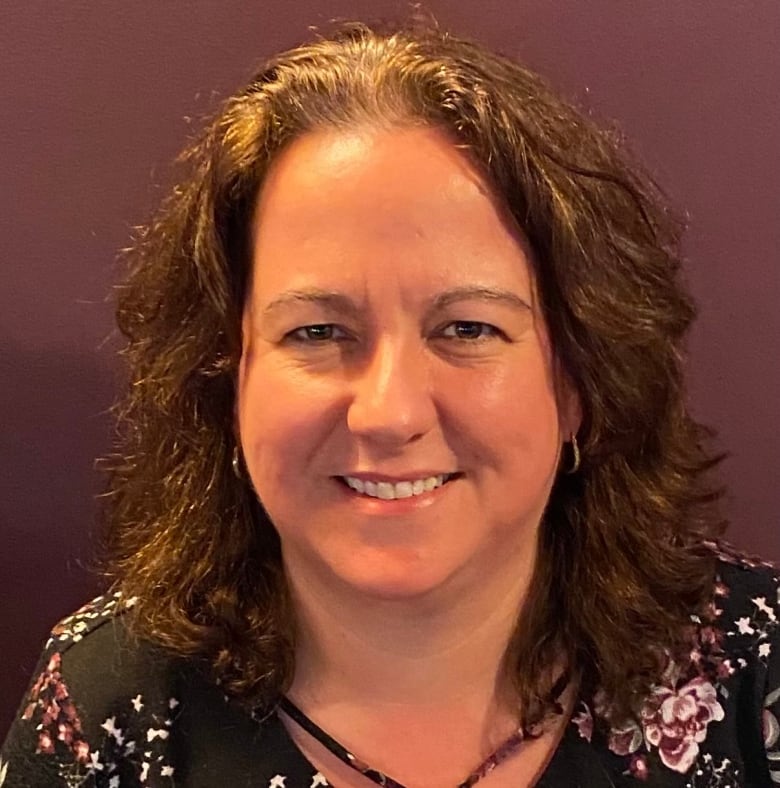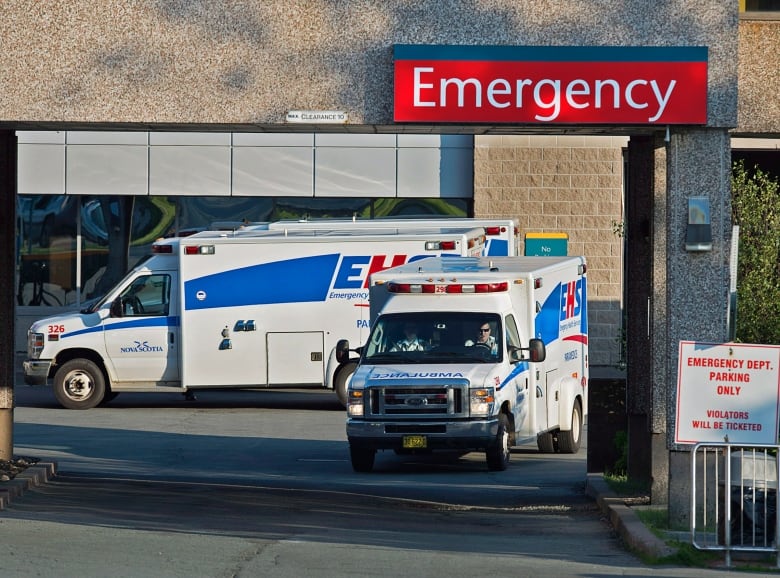911 operators face untold stress on the job. Sometimes they need help, too
They are the calm and steady voice on the end of an emergency call, guiding people through some of the worst moments of their lives.
But behind that voice is a pain no one hears.
“It’s tough on the head … and I don’t know of any dispatcher that’s not affected,” said Kathleen Hippern, president of CUPE Local 104, a national union that represents RCMP dispatchers and communications specialists.
Hippern herself has been diagnosed with post-traumatic stress disorder from her years taking calls.

“We’re the one point of contact to get them whatever help they need,” she said. “It’s a profound stress. At the same time, it’s a profound honour.”
She and her co-workers, also known as public safety communicators, have to suppress their feelings in order to do their jobs.
“You kind of try to put it away just to kind of protect yourself because the next call is going to happen,” she said. “It can really play on your mind. You get through your shift and you get home and it doesn’t go away. It’s still there.
“Depending on how traumatic the call was, and how you absorbed it, could play on your mind for months and years … as an operational-stress injury where it becomes a post-traumatic event.”
Hippern said it can eat away at a person, destroying their home life, and leading them to withdraw from the things they used to enjoy
Across the country, public safety communicators are suffering from mental health problems like post-traumatic stress disorder, depression, anxiety and a raft of other conditions brought on by the horrendous things they hear over the phone, according to the Association of Public Safety Communications Officials.
Robert Stewart, the organization’s vice-president as well as director of emergency communications for the city of Brandon and Manitoba’s provincial 911 system, said it’s hard to guide someone in a time of crisis and never learn the outcome.
“There’s no closure for public safety communicators,” he said. “For me, specifically, that was one of the harder things to deal with was to go home after having helped a parent through CPR on the phone with their child and not knowing in the end how that child fared.”
Research has shown it is unhealthy for communicators to put aside their emotions so they can move on to the next call, he said.
“What we’re finding now is all of that pushing it down and not dealing with it, and not really talking about it … has always been taking its toll and we’ve only just realized that,” said Stewart.
But exactly how many communicators across the country are suffering isn’t clear.
There are no solid figures for Nova Scotia either, said Hippern.
“I don’t have a study,” she said. “I don’t have facts and figures for you. There’s people that had to retire medically because of the trauma that’s been experienced … there’s been people that have had to leave work for a number of months get some special treatment, and then come back and … they’re doing alright.”
Others have tried to come back and the work has overwhelmed them, and they leave again.

Work is underway to figure out the scope of the problem.
Stephen Czarnuch, an assistant professor at Memorial University in Newfoundland, is working with APCO to research the mental health of communicators.
He said little work has been done on the topic outside of one study.
To figure out what’s happening, a mental health self-assessment survey will be distributed to as many communicators as possible. The survey should go out in the next few weeks.
“The first step is gaining some evidence so we’re no longer speculating on what communicators are experiencing, but we can actually put some support behind claims that … mental health is an issue, and then we can start as a group on how to work to solve those issues,” Czarnuch said.

The RCMP already offer a range of help for their communicators who might develop mental health problems, said Hippern. That includes training, mental health courses, peer-to-peer support programs, and support from the force’s health services team, said the RCMP in an email.
“Their commitment to the public in times of crisis and to the police officers they dispatch to on a daily basis is second to none and I’m honoured to be able to work alongside all of them,” said Cpl. Lisa Croteau.
If employees need time off for mental health reasons they can take it. When they feel well enough to return, there is an employee-centred program to help them rejoin the workforce, Croteau said.
Hippern said that’s a good start, but more needs to be done to help people recognize they may be developing a mental health problem and to stop it before it worsens.

Emergency Health Services, which operates Nova Scotia’s paramedic and ambulance service, has seen its members struggle with mental health as well.
Adrian MacDonald has been doing the job for EHS for 17 years.
Over the last few years he noticed he was changing. MacDonald stopped enjoying things that he used to love and began dreading going to work.
“It started to bother me more and it built more as my career went by, so I decided to take things in my own hands, too,” said MacDonald. “It got rougher some days. It seems like the calls stuck with you more.”
He got help. He now speaks with a therapist on a regular basis and makes sure to get a walk in before his shift starts, which clears his head.

EHS offers numerous programs to help their communicators as well. Those include a peer and family support services team, employee and family assistance programs, cognitive behavioural therapy and programs to provide faster access to psychologist referrals or mental health professionals.
In an email, an EHS spokesperson said they are “proud of the work communications officers do each and every day. They help provide exceptional care for Nova Scotians when they need it most.”
Still, communicators don’t get the credit they deserve from the public, said Stewart.
“We are the … catcher on the baseball team who touches every play and calls all of the shots,” he said. “The public don’t see us as sort of the bigger-picture co-ordinators. We’re forgotten.”
MORE TOP STORIES



